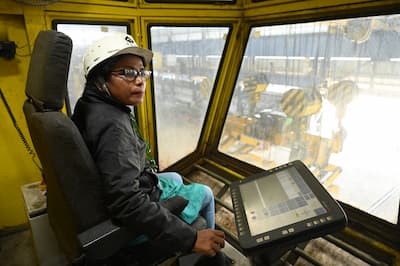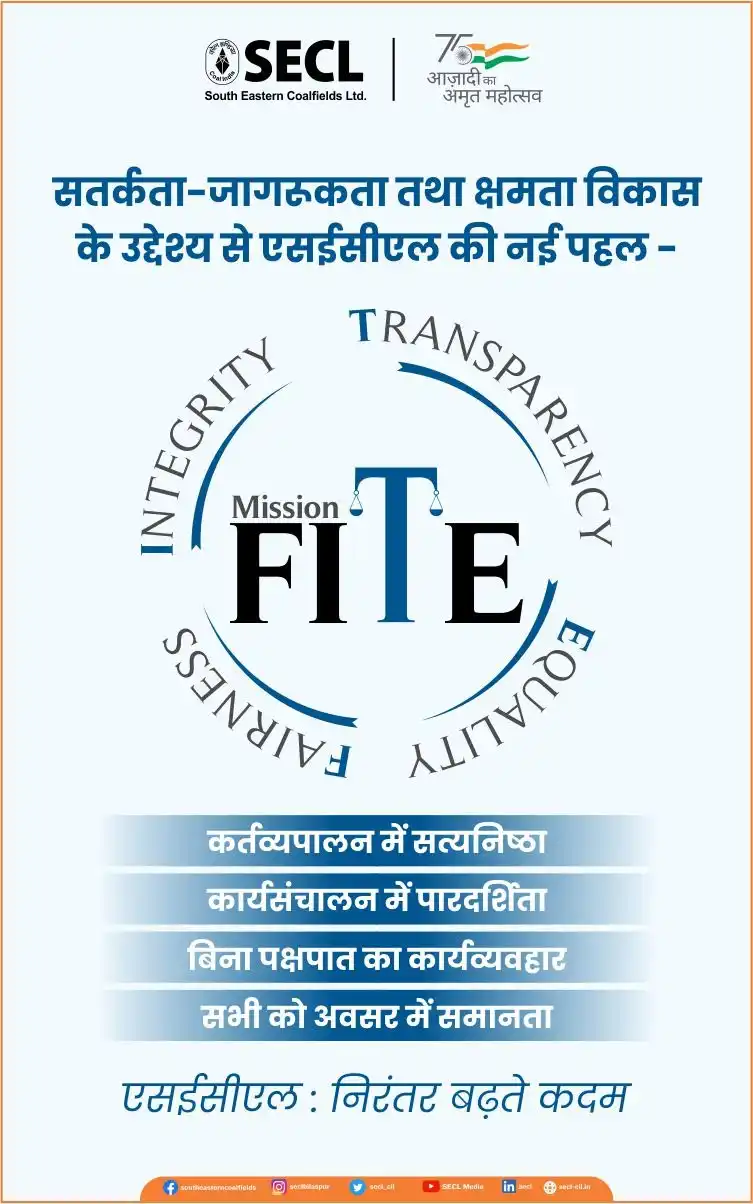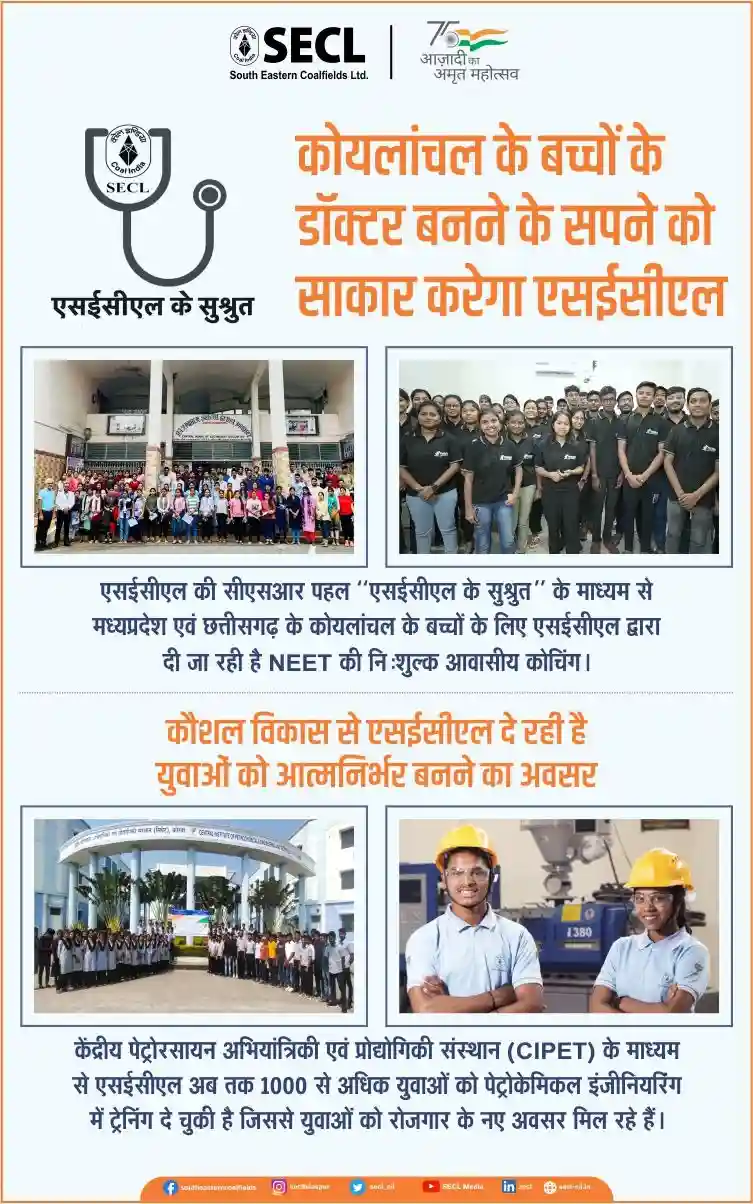After effectively managing the family, household chores, and technical office works, women are now breaking the barriers, taking command of critical industrial operations. One eloquent example can be seen in the Hot Strip Mill-2 (HSM-2) of SAIL, Rourkela Steel Plant (RSP), where women are operating Electric Overhead Travelling (EOT) Cranes. The trio of Ms. Prema Kanti Bilung, Ms. Nilima Tanty, and Ms. Reena Mundari, all from HSM-2 have set examples worth emulating in the traditionally male-dominated realm of steel production.
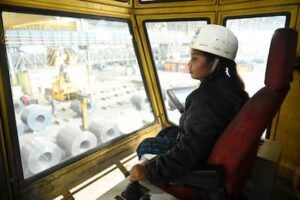
Surprisingly, none of these gutsy women possess any formal technical education in crane operation. However, they have fearlessly embraced the role of crane operators after mastering the skill sets, proving that passion and adaptability can be formidable substitutes for formal education in specific domains. Their journey of operating crane started at Hot Strip Mill -1, where they showed their interest in operating EOT cranes.
Today, these exceptional women navigate the Overhead Cranes in various critical zones of Hot Strip Mill-2 like Coil Yard and Slab Yard. Ms. Tanty boasts of operating cranes over the Furnaces too, which is regarded as one of the most critical hot zones of the plant. From unloading heavy steel slabs to loading coils on the wagons, their roles encompass pivotal responsibilities through different stages of production.
“I feel proud to operate cranes which were exclusively set for men till we started operating it here. After my training at HSM-1, I was called at HSM-2 to operate cranes due to shortage of Crane Operators and since then I have been operating cranes at different areas of HSM-2” says Ms. Tanty. “At first, it looked very dangerous and it felt unsettling to climb the cranes at such height but now it has become a habit and part of our daily job” added Ms. Bilung who learnt crane operation on mono rail cranes. Both of them are operating cranes at HSM -2 since 2020.
Ms. Reena, who joined HSM-2 in 2021 says she feels something extraordinary by doing such challenging job that others think are impossible. Apart from just operating cranes at the department, she has taken the responsibility to provide crane operation training to other female workers. “I am thankful to the department and management for entrusting us with such responsibilities and posing faith on us,” says Ms. Reena.
The Overhead Cranes, a pivotal component in the steel production process, are now operated with precision and expertise by these pioneering women, highlighting the industry’s shift towards recognizing talent irrespective of gender.
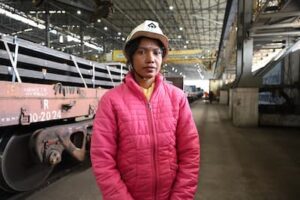
The move of assigning female workers the job of critical crane operation aligns with SAIL, RSP’s broader commitment to promoting diversity and providing equal opportunities for all employees. This initiative also reflects the narrative of women’s empowerment in India, where industries are increasingly recognizing the inherent potential of women and are actively working towards creating more inclusive workplaces.

